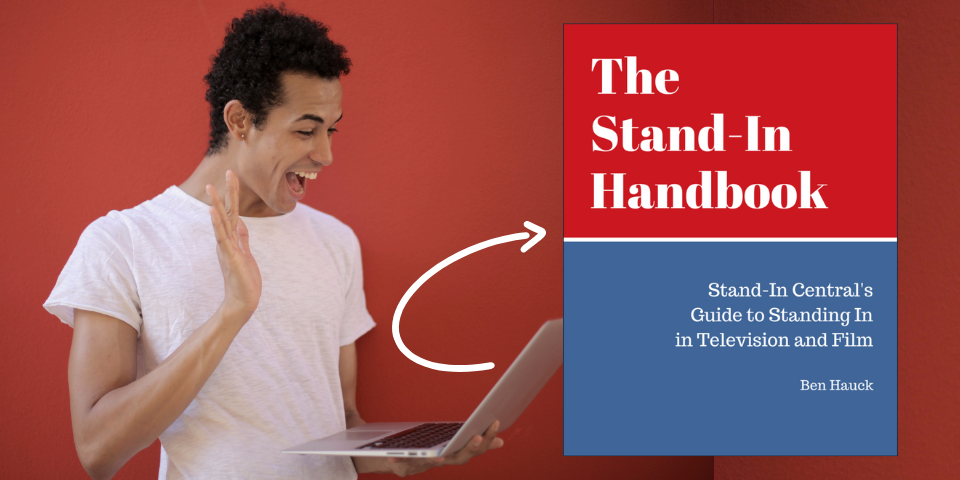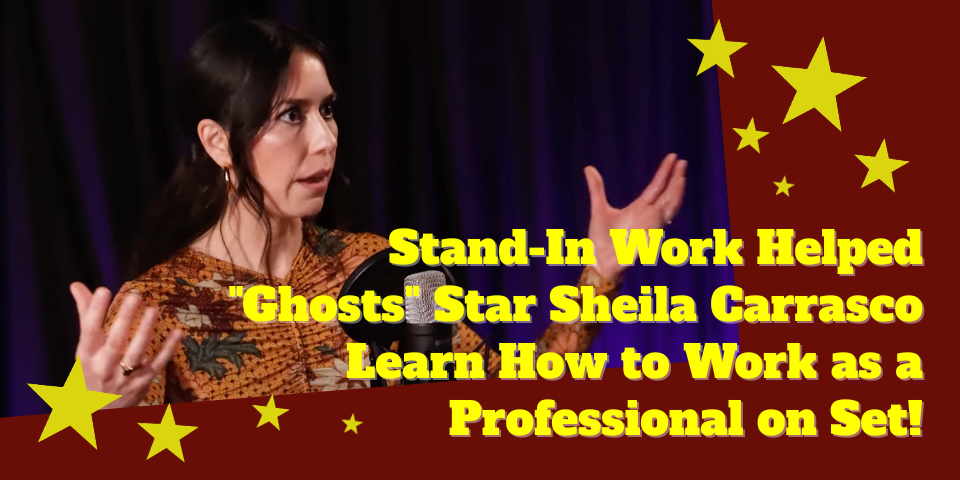If you are in the lucky position of being offered long-term stand-in work, it may feel like a blessing and a curse.
As for blessings, you might celebrate the continuous work over many weeks or months and the potential for a generous paycheck for your work.
But as for curses, you might find that your personal life takes a backseat. And not just your personal life: You may find it hard to work around a vacation you already planned for a weekend, make it to a dentist appointment, or visit the doctor when you get sick.
So the question is: When you say that you’re available for long-term stand-in work, what exactly does that mean?
Our answer may surprise you. Read on for more insight.
“Yes, I’m Available”
When you are presented with the option of accepting long-term stand-in work, you might be asked if you’re available “with no conflicts” for the period of production. That period might be now until four to eight weeks from now, or it might even be for quite a number of months.
If you have, say, scheduled an important doctor’s appointment for a day several months away, or you know you have to see your accountant to prepare your taxes in a few weeks, in the opinion of Stand-In Central, those conflicts should not be reasons for you to say that you are not available for the stand-in job.
In other words, we would generally advise to say that you’re available even if you happen to have some conflicts over the period of production. We say this for a few reasons:
- As you work on film and television sets, other crew members — perhaps more important than you! — sometimes cannot make it in. In their places are replacement crew members for the days they are not in, and production does not grind to a halt. The same generally applies to stand-ins: If a stand-in cannot make it in, another stand-in may come in as a replacement. Casting directors often have backup stand-ins available in the event the main stand-ins are unavailable for a day, or they will search for another stand-in in the event of a sudden stand-in absence.
- Most stand-ins will not work every day of a production, so it is hard to keep available for a production that will not tell you guaranteed days you are working or that does not have you under contract. This means that it is reasonable to expect if you are standing in on a production that does not work you every day that you might end up with a conflict that you cannot get around when production unexpectedly wants to call you in.
What to Share about Your Availability
If you do know of conflicts, you should decide whether to disclose them or how to disclose them when you are offered a long-term stand-in job.
If you really want the stand-in job, and if you know of, say, two conflict days over the course of an eight-week shoot, you might want to weigh how you think the casting director will react to your sharing you have two conflict days.
Of course, you might not know how the casting director will react, especially if there may be other viable candidates for the stand-in job who reportedly have no conflicts themselves. (And who’s to say they are telling the truth about their absolute availability?)
In general, we would advise you to provide any conflict days you know of if it seems that the production really wants to use you. You will know this if, say, you know an AD on set really would want you as a stand-in on the production because the AD has said your professionalism makes that AD’s job easier. When you have a lot of experience and you’re in demand, you are in a better situation to disclose conflict days you might have over the course of a stand-in job.
However, if you are being offered a stand-in job and having any conflict would make the casting director choose someone else, we would advise not to provide any conflict days you know you have. Instead, after you start work, and as you approach the conflict day, communicate with an AD that you will need to miss an upcoming day, and around the same time also communicate with the casting director so the casting director can prepare to find a replacement for your absence.
Most of the time this situation will be completely reasonable (remember: people get sick, people have tax and doctor’s appointments, and other demanding things in life happen), and you will keep your stand-in job even in the face of a one-day conflict. The key is to give the head’s up to casting and production closer to the day of your conflict as not to completely surprise them with your conflict.
When You Are Going Away
Things are a little different if you are offered a long-term stand-in job, and you’ve already, say, bought plane tickets for a trip taking place 2/3 the way through the shoot.
In such an event, it probably would be more reasonable to share that kind of conflict with the casting director. The casting director can then figure out whether production can work with your conflict or not. You might find out that your actor isn’t working much during the time you are away, so your trip is actually okay! Or you may find out that that’s an important time that production needs you and that it won’t work out for you to be away so long.
All productions are different, so whether your vacation will be a bad conflict or an okay one is something to be discovered. It may be painful to find that your hard-earned vacation is preventing you from accepting a long-term stand-in job, but take note: Long-term stand-in work is not necessarily every day, so if you canceled your vacation for the stand-in job, you might painfully find that your actor isn’t working during the time you scheduled your vacation, so you canceled your vacation for nothing!
What about Job Security?
Of course, there is the question of when you take a day off from your long-term stand-in job, might you lose it to another stand-in?
There is no guarantee that won’t happen. However, if you are good at your job as a stand-in, there is a good chance you will have job security after you take a day off. In other words, you can usually safely expect that you will keep your stand-in job and be asked back after your conflict.
While we have indeed seen stand-ins replaced when another stand-in comes in, this has usually been because the original stand-in was not very good at his or her job. Standing in isn’t always about looking like your actor; it often involves more important work like knowing your actor’s blocking, watching the monitors, and being where you need to be when an AD calls for second team. (If you want guidance on how to excel as a TV or film stand-in, make sure to download The Stand-In Handbook.)
So in general, if you are good at your job as a stand-in, you more than likely have job security in the face of a day you cannot make it to set. But if you are not great as a stand-in, you might want to consider that having a conflict might invite a better stand-in onto production whose ability might threaten your long-term work. It’s tough to say whether you will get replaced, but not excelling at your job and having conflicts might spell out that you lose your job.
That said, even some of the least conscientious stand-ins keep their jobs despite conflicts, and some of the best stand-ins lose their jobs after their days off to other stand-ins who are better matches for their actors. So it’s hardly clear what will happen when you have to take a personal day, but experience tends to favor job security over job insecurity.
In Conclusion
There is definitely no right or wrong way to answer questions about your availability for a long-term stand-in job. But experience suggests that having a few conflicts over the course of most shoots is completely reasonable for stand-ins, and a demand for a stand-in’s complete and total availability borders on extreme. So if you are asked if you have any conflicts over a long shoot period, you can usually say “no” even if you know you have a few days in the future that will be conflicts.
Most stand-ins are not so vital to a production that the shoot cannot go forward with a different stand-in for a day you have a conflict. That said, do not grossly misrepresent your availability to production or to casting when you are offered a stand-in job. If you are never or almost never going to be available for a shoot, share that with the casting director. Hey, you still might be asked to work on the job! Or casting can another person take the job and you spare them and production headaches in lining up their choice stand-ins.
How do you field sharing conflicts you have on your stand-in jobs? Share any advice in the comments section below on how you deal with conflicts on your long-term stand-in job!







Leave A Comment